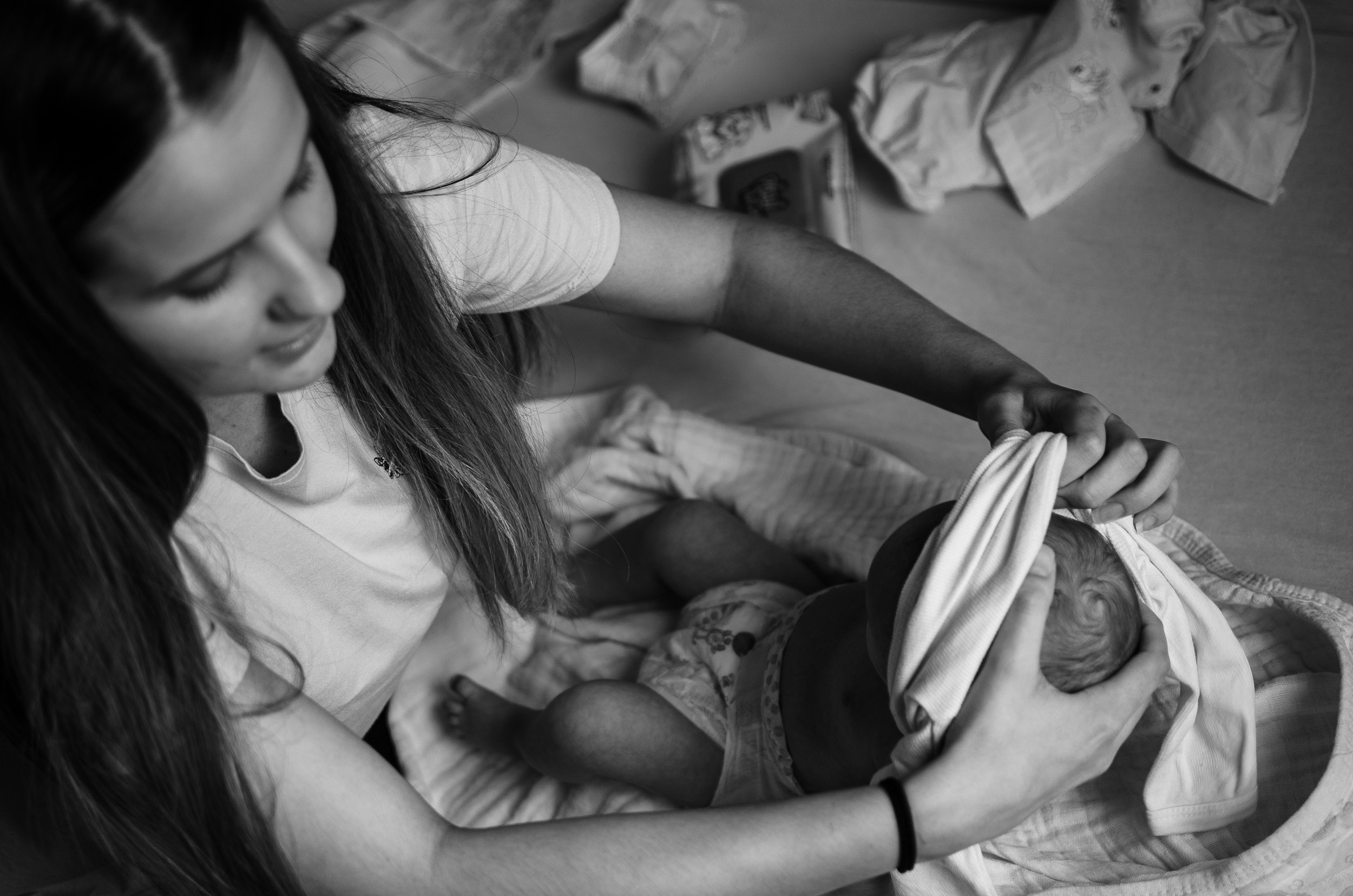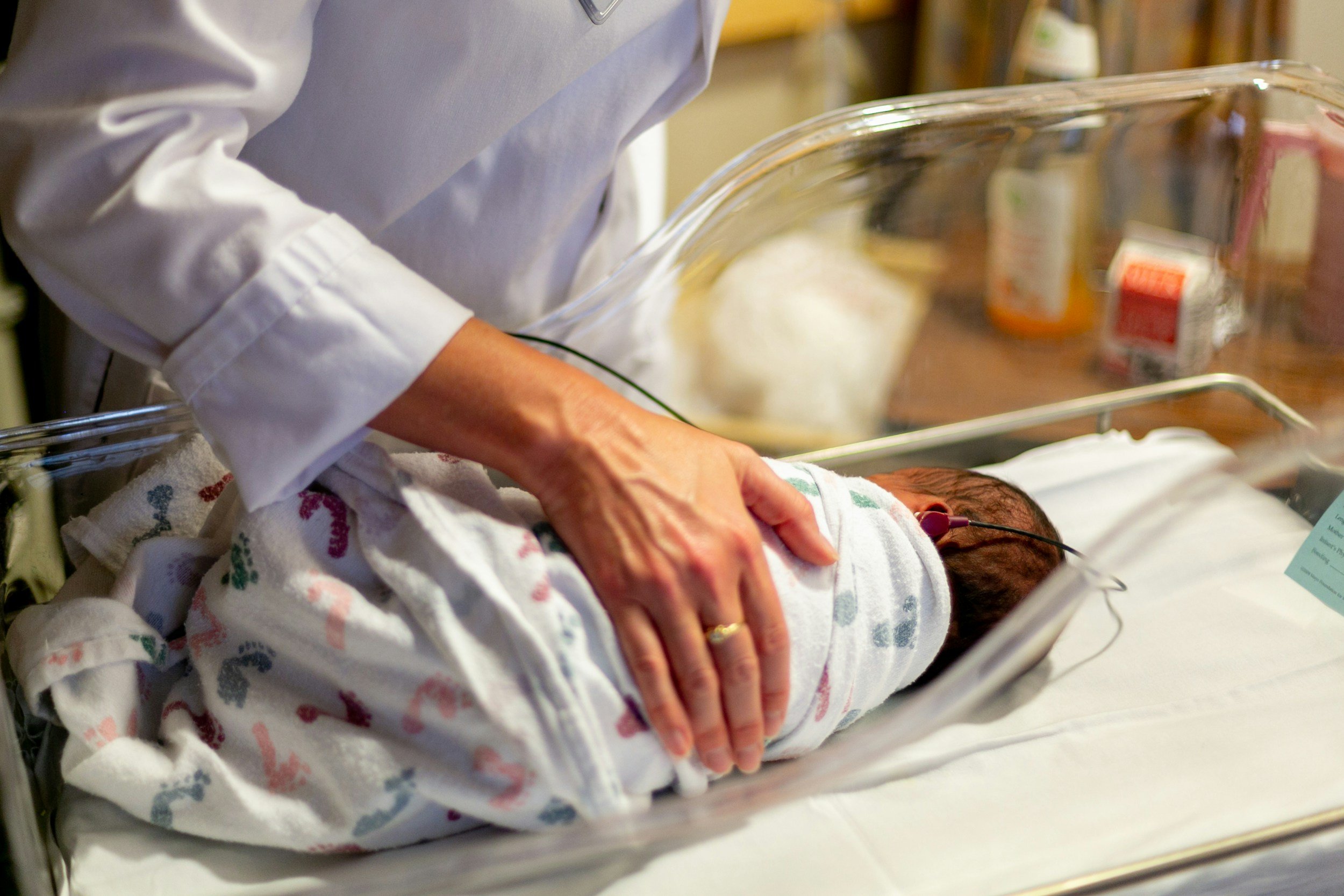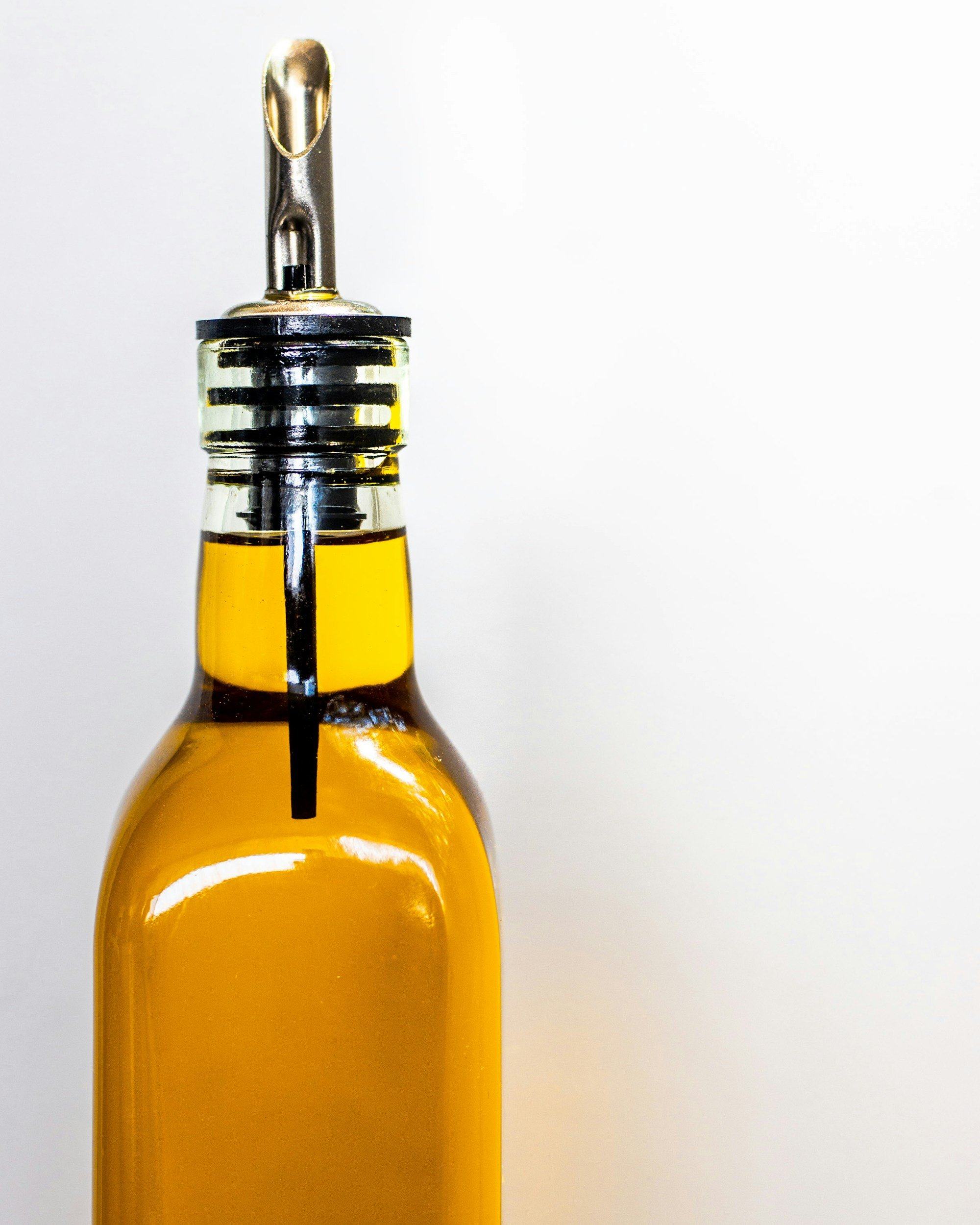
Understanding Screening Tests During Pregnancy: What You Need to Know
Pregnancy comes with a lot of excitement, but also many questions—especially when it comes to screening tests. These tests help ensure both you and your baby are healthy and developing well. From blood tests to ultrasounds, each screening provides important information about your pregnancy. In this article, we'll break down the most common screening tests, what they check for, and how they can help guide your pregnancy care.

Keeping healthy - for you and your baby
Pregnancy is a journey filled with excitement, challenges, and plenty of changes—but staying healthy doesn’t have to be complicated. From nourishing your body with the right foods to embracing gentle exercise and prioritizing rest, there are simple steps you can take to support your well-being and your baby’s development. Let’s explore practical tips to keep you feeling strong, energized, and ready for the adventure ahead!

What Do Babies Do All Day in your Uterus? A Peek Inside Their Busy Little World
Ever wonder what your baby is up to while nestled snugly in your womb? Spoiler alert: they're not just lounging around! From hiccupping and stretching to practicing their ninja moves, babies are surprisingly active in utero. This fascinating little world of kicks, tumbles, and even "breathing" practice offers a glimpse into their development and growing personality. Get ready to dive into the amazing daily life of your womb-dweller!

When the Overwhelming Love Doesn’t Come Right Away: A Raw Look at Post-Birth Feelings
Becoming a parent is supposed to be magical, but the truth is, it’s messy, exhausting, and often overwhelming. In those early days, love doesn’t always come instantly—it grows slowly, nurtured by small moments and quiet connections. And that’s okay. Parenthood is a journey, and love, like all good things, takes time to bloom.

Dealing with Itching During Pregnancy: What’s Normal and How to Find Relief
Itching during pregnancy is a common annoyance, especially as your belly and breasts stretch to accommodate growth. While mild itching is typically harmless, it can sometimes signal more serious conditions like cholestasis of pregnancy or PUPPP rash. Learn how to soothe itchy skin with simple remedies like cool compresses, oatmeal baths, and fragrance-free moisturisers. Plus, discover when it’s time to call your healthcare provider to ensure you and your baby stay healthy.

Things You Really Don’t Want to Hear (or See) From Your Partner During Labour and Birth
Labour is no time for partners to drop the ball! While your role might not be as physical, your presence and support mean everything. But beware—there are a few classic mistakes that can turn a stressful situation into a downright disaster. From falling asleep to scrolling on your phone or making ill-timed jokes, we’ve compiled a list of what not to say or do during labour and birth. Read on to avoid the pitfalls and ensure you’re the supportive partner your loved one needs in the delivery room!

Let's Talk About It: The Truth About Pooping During Labour
It’s the moment no one talks about but everyone wonders about—pooping during labour. Is it common? Should you be embarrassed? Spoiler alert: it’s totally normal and even expected! In this blog, we’re breaking the taboo and giving you the honest facts about why it happens, what it means, and why your birthing team couldn’t care less. Let’s take the pressure off (pun intended) and get real about this natural part of the process!

Signs of Labour
Labour is a natural, beautiful thing – and perhaps a little terrifying too. Understandably, because it’s the great unknown. Even if you’ve been through it before, there’s no guarantee this time will be the same as your previous experience.
Having your baby on their due date is rare: only about 1 in 20 people manage this. Usually, labour starts somewhere between 1 week before your due date and 2 weeks after it. If this is your first baby, the start of labour is normally gradual. It can last hours and stop and start over multiple days.

Understanding Preterm Labour: Causes, Risks, and What to Expect
Preterm labour occurs when contractions cause the cervix to open before 37 weeks of pregnancy, leading to the birth of a baby earlier than expected. While every pregnancy is unique, preterm birth can increase the risk of complications for both mother and baby. Early signs of preterm labour may include regular contractions, lower back pain, and changes in vaginal discharge. It's essential to recognize these signs and seek medical advice if you suspect early labour. Understanding preterm labour, its causes, and how to manage it can help you take proactive steps to ensure the best possible outcome for both you and your baby.

What is Hyperemesis Gravidarum and How Can You Manage It?
Hyperemesis Gravidarum (HG) is a severe form of morning sickness that can cause extreme nausea and vomiting during pregnancy, often leading to dehydration and weight loss. This condition goes beyond typical pregnancy discomfort and can significantly impact a woman’s daily life. Learn about the symptoms, causes, and effective treatments for Hyperemesis Gravidarum, along with coping strategies to help manage this challenging pregnancy experience. Understanding HG is crucial for both expectant mothers and their support network, so they can get the care and support needed to feel better.

Understanding Gestational Diabetes: What Expecting Mums Need to Know
Gestational diabetes is a type of diabetes that develops during pregnancy and affects how your body processes sugar. It's important to manage this condition to ensure both your health and your baby’s well-being. With proper monitoring, diet adjustments, and a healthy lifestyle, you can manage gestational diabetes and reduce the risk of complications. In this blog, we’ll explore the symptoms, risks, and tips for managing gestational diabetes, helping you navigate this condition with knowledge.

Preeclampsia Explained: Signs, Symptoms, and Risk Factors
Preeclampsia is a serious pregnancy complication that can affect both mum and baby. It is important to recognise the signs and symptoms early, such as high blood pressure and swelling, to manage the condition effectively. In this blog, we break down everything you need to know about preeclampsia, including risk factors, how it’s diagnosed, and the steps you can take for a healthy pregnancy. Whether you're at risk or just want to be informed, this guide provides essential insights for expecting mums.

Perineal Massage. Is it worth doing?
Perineal massage is a gentle technique that involves massaging the perineum (the area between the vagina and anus) in the weeks leading up to labour. The benefits of perineal massage include increased elasticity of the perineal tissues, which may help reduce the risk of tearing during childbirth. It can also help improve blood flow to the area, leading to better healing after birth. Many women find that regular perineal massage makes them feel more connected to their body and more confident about the birth process. It’s a simple, non-invasive way to support your body in preparing for labour and delivery.

How Does Labor Process Begin?
Understanding how labour begins is key to preparing for childbirth. The process typically starts with early signs like contractions, changes in vaginal discharge, and the loss of the mucus plug. These signals indicate that your body is preparing for delivery. In this guide, we'll explore how labour starts, what to expect during the early stages, and when to reach out to your healthcare provider. Knowing these signs can help you feel more confident and ready for the big day.

Staying Active During Pregnancy: The Benefits of Exercise for You and Baby
Exercise during pregnancy offers numerous benefits for both the mother and baby. Staying active can help reduce common pregnancy discomforts, improve energy levels, support healthy weight gain, and prepare the body for labour. Whether through walking, swimming, or prenatal yoga, regular exercise boosts circulation, strengthens muscles, and improves overall well-being. Always consult with a healthcare provider before starting a new routine to ensure safety for both you and your growing baby. Read on….

Celebrating the Power of Your Placenta and What to Do After Birth
The placenta is an incredible organ that plays a vital role in your pregnancy, providing essential nutrients and oxygen to your baby. After birth, many families choose to honor this remarkable organ in meaningful ways, such as through placenta burial or planting a tree. This post explores the amazing functions of the placenta and offers ideas for honouring it after birth, celebrating the connection between mother, baby, and the earth.

Why Sleeping on Your Side is Crucial During Pregnancy
Sleeping on your side during pregnancy is essential for both your health and your baby's well-being. As your pregnancy progresses, side sleeping helps improve circulation, reduces pressure on vital organs, and ensures optimal blood flow to your placenta. It also helps alleviate back pain and reduces the risk of complications like gestational hypertension. By adopting a side-sleeping position, especially on your left side, you can promote a restful sleep and support a healthier pregnancy. Read more here…..

Embracing Plus-Size Pregnancy and Labour: Navigating Your Journey with Confidence
Plus-size pregnancies come with unique considerations, but that doesn't mean your journey can't be empowering and fulfilling. Whether you're navigating the changes of pregnancy or preparing for labor, understanding your body’s needs and knowing how to advocate for yourself can make all the difference. In this blog, we’ll explore key insights and practical tips for a healthy plus-size pregnancy, including advice on labor preparation, healthcare support, and self-care. Embrace your body and your journey with confidence, knowing you’re not alone and there’s plenty of support available for you along the way.

Essential Aftercare for Caesarean Section: Healing and Recovery Tips
After a C-section, recovery can take time and patience, but with the right care and support, you'll heal and feel stronger every day. The first few days after surgery are focused on managing pain, preventing infection, and allowing your body to rest. You’ll likely need assistance with daily tasks as you regain mobility and strength. It’s important to monitor your incision for signs of infection, stay hydrated, and follow your healthcare provider's advice on movement, rest, and nutrition. Taking care of yourself during this time is vital, so don't hesitate to ask for help, prioritize rest, and allow your body the time it needs to heal properly.

The Golden Hour: Why the First Hour After Birth is So Important
The "Golden Hour" refers to the precious first hour after birth, a crucial time for both you and your newborn. During this time, your baby is alert and ready to bond, making it the perfect moment for skin-to-skin contact and initiating breastfeeding. The benefits are immense, from regulating your baby’s body temperature to promoting healthy brain development. For you, it’s a time to begin forming a deep connection with your little one, setting the stage for a lifetime of love and trust. This sacred hour is not just for baby—it’s an essential bonding experience for both parents to embrace.

